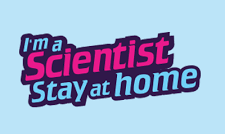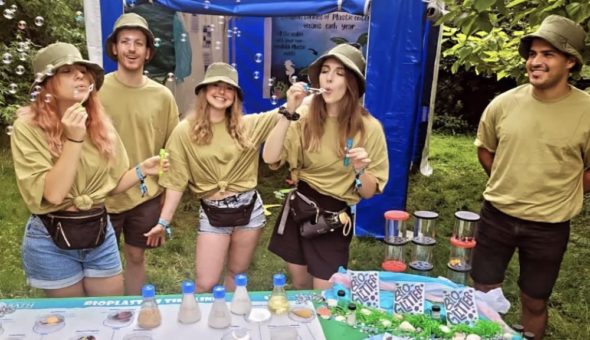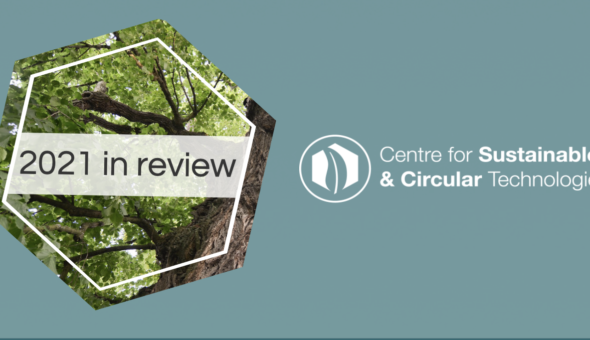In April 2020, while sitting at home wondering what to do with all the energy they would usually dedicate to bewitching anyone who would listen with tales of their research, our students Jon Noble and Emma Daniels, from the CSCT Public Engagement Committee, decided a lockdown was not going to stop them. So, they did what everyone else did and took things to the online world.
It’s official: kids today don’t want to learn about science. They want to know what your favourite pizza is, what you like best about trains, and would much rather pretend to be a dinosaur than learn the ins and outs of the periodic table. It would be frustrating, except we were all that kid once (some of us still are…). But this isn’t called “I’m A Scientist – Ask Me About Science”; it’s “I’m A Scientist Get Me Out of Here” – an online platform in which primary and secondary schoolchildren get to lead the debate and ask a diverse group of scientists literally anything.
How does it work?
‘Ask Me Anything’, aka. AMA sessions have been a popular format for a few years. They offer a fantastic and very convenient opportunity to get in touch with experts and poke their brains about whatever their hungry audiences may want.
On the other hand, ‘I’m A Scientist Get Me Out of Here’ has also been around for years. Until March 2020, it was is an online activity for schools and teachers. Following the national lockdown, it was only a matter of time until ‘I’m A Scientist Get Me Out of Here’ evolved into ‘I’m A Scientist, Stay at Home’.
The “I’m a Scientist…” activity ran over several months to bring together schoolchildren and scientists from a range of backgrounds. After sorting scientists into zones depending on their research areas and expertise, the fun begins. One of the activities includes live, text-based chats in which 5 or so scientists race to answer questions from a whole class of students! Alternatively to this slightly manic format, students can also post their questions directly to the scientist of their choice via a much calmer Q&A forum.
What did they want to know?
“I’m A Scientist” covers a broad range of ages, from 7 to 16 year-olds. So, as you can imagine, the questions we received were varied!
At the oldest end of this spectrum, they are asking great questions around why we chose to become scientists/engineers/technologists because they want to know if it is the right thing for them. What sort of things do you do? What’s the most interesting part of your job? How much do you get paid? What’s the worst part of your job? In a very real sense, these are people transitioning into young adulthood and have a pressing need to understand whether the choice of subjects that they are making now are the right ones.
At the other end are children who are oblivious to the choices that are ahead. The thing is, young children are naturally curious. A question pops into their head and comes straight out their mouth. If it’s related to science, great. At the very core, most things are. Cooking? That’s chemistry. Gardening? Biology and biotechnology. Going on holiday somewhere nice? You’d better check the weather forecast – a combination of physics, computer science and black magic. It took us a while to realise that, actually, what these children want is to connect with scientists as people. To know about their hobbies and their quirks. To be surprised that these grown-ups know almost as much about Spongebob Squarepants as they do.
What did we learn?
So, it’s official. Some kids today don’t want to learn about science. And that’s alright. Because what they actually want is someone to identify with, to see that scientists are normal people doing extraordinary things. To see themselves in these quirky, wonderful people and not think “that’s science – that’s what I want to do” but rather, “these are scientists – they are, one day, who I want to be”. And who could ask for more than that?
Respond






